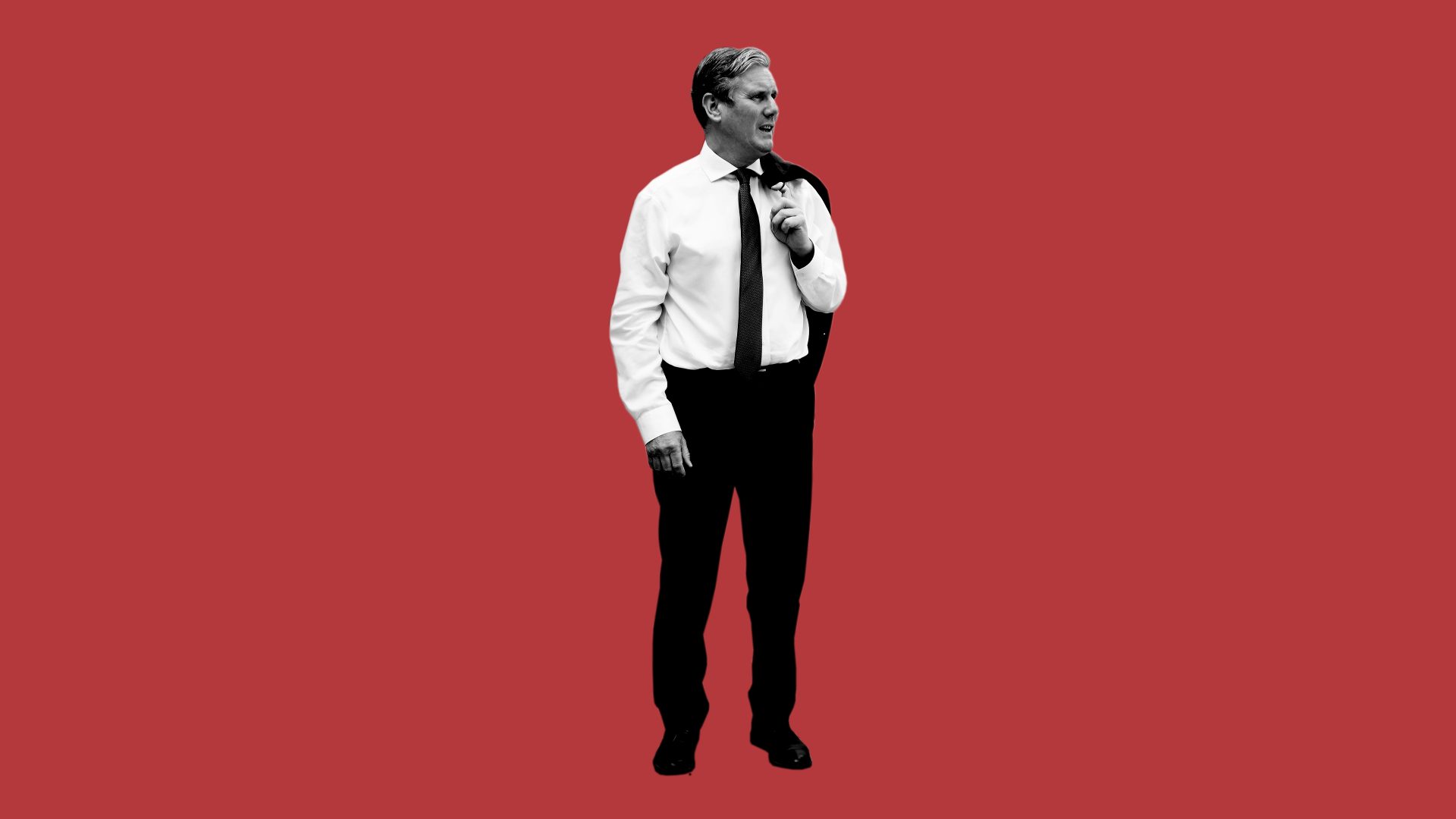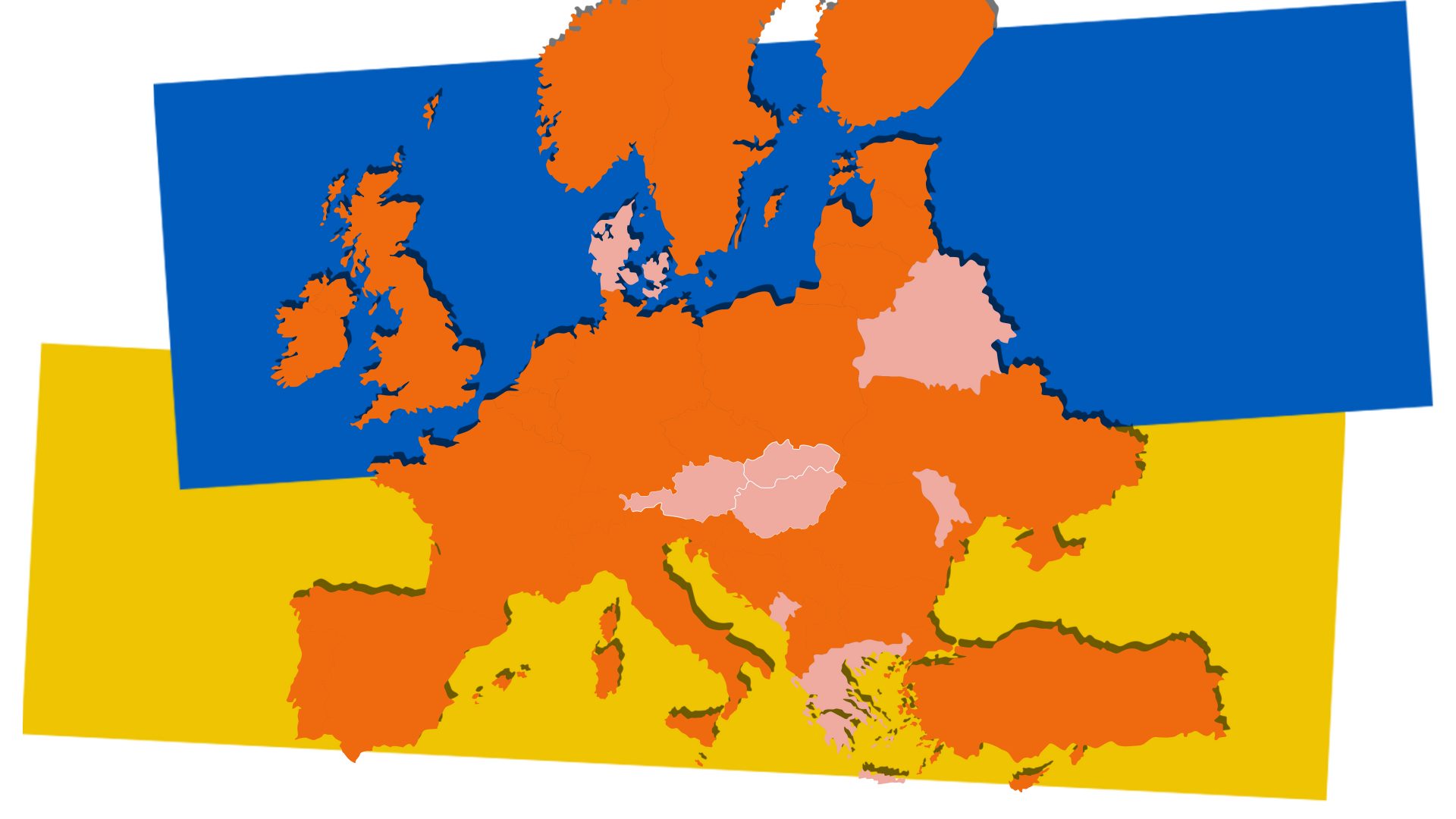“Any other leader would be 20 points ahead,” said Tony Blair, attacking Jeremy Corbyn in 2017. Amid the political trauma that followed, his words became a classic internet meme. Once Keir Starmer replaced Corbyn, it became a stick for the die-hard Labour left to beat the faltering new leader with.
Now Starmer is within reach of those 20 points. A PeoplePolling survey last week put Labour on 42% and the Tories on 25% – leaving Labour just three points short of the iconic figure.
More importantly, the poll also gives the Green Party – whose co-leaders are virtually invisible and whose policies are unknown – 7%, a figure regarded as very squeezable by Labour strategists.
Even after it is filtered through the UK voting system, which gives the Conservatives an advantage through better geographical distribution of their voter base, the 17-point lead would remove large parts of the current Tory cabinet from parliament.
As Labour MPs head back to London ready for parliament to resume, even some of the naysayers among them are ready to admit that Starmer looks like a prime minister in waiting.
So for Keir (whose leadership campaign I backed), in one sense the only way is down. He has defeated Boris Johnson in the court of public opinion, largely without making any major policy announcements or startling initiatives of his own.
The Tories have imploded for self-made reasons. First, Partygate, which overnight destroyed their poll lead. Next, by generating scandals instead of solutions to the accelerating cost-of-living crisis. Finally by ejecting the one, bumptious personality who could have held together this alliance of austerians, culture warriors and social misfits.
As Labour itself learned, the wider electorate – which barely glances at news programmes – hates divided parties. And the resignations, the hustings, the aggressive briefings and the slanging matches with which the Tories have filled the summer months have created the impression of acute division.
Whether Starmer retains that 17-point lead, or sees it slip through his fingers, will depend on three factors: the depths and unpredictability of the economic crunch now unfolding; Liz Truss’s ability to come up with tangible solutions and hold the line for them in parliament; and whether Starmer’s own frontbench can rise to the radical moment the crisis will create.
The crisis itself is shaping up to be brutal. Six out of 10 British factories may have to close their doors until their energy bills come down, according to a MakeUK survey. Small businesses, like pubs, cafes and dry cleaners, are getting hammered with electricity bills that are 10 times the normal rate.
Meanwhile, the current mixture of handouts, tax cuts and windfall taxes on the energy wholesalers will still leave up to two-thirds of families struggling to get through the winter.
The point about such crises, even if you can quantify the initial damage, is that you cannot predict the feedback loops between economics and politics.
If pubs, chippies and corner shops start going bust, which have been the fabric of working-class community life for decades, then Starmer’s general stance of “not nationalising things” will begin to look pointless. We may have to nationalise large parts of the energy and transport infrastructure this winter to save capitalism, not to attack it.
In Truss, Starmer faces an unknown quantity. Her deficiencies are already clear: her entire career has been underwhelming. She has a tin ear for political communications. She floundered at the beginning of the Ukraine crisis – letting Russia’s Sergei Lavrov run rings around her in public.
Yet, by abandoning the “Treasury view” of economics, whereby the Bank of England is depoliticised and there must always be the promise of deficit reduction just around the corner, Truss has given herself the ammunition to be radical.
She could quite easily come out swinging with an emergency budget that steals Labour’s plan to freeze energy bills and deliver 30-odd billion worth of tax cuts to the south of England Tory faithful.
In addition, she could begin to execute some of the myriad threats and promises the Tories have made during the Johnson years, but failed to implement.
There have, despite sound and fury, been no successful deportation flights to Rwanda. Julian Assange remains in Belmarsh, not in the United States. China’s attempt to buy Britain’s last significant silicon chip maker is unvetoed. The ailing AJAX armoured vehicle programme is in limbo. The Northern Ireland Protocol remains in force.
A short, sharp series of decisions and actions would make Truss look good exactly among the first-time Tory voters of 2019 who are deserting them in the polls.
There is nothing Starmer, or any opposition leader, can do once a prime minister begins to exploit the advantages of incumbency: the government can set the news agenda like clockwork, so long as it can remain scandal-free.
Starmer’s best defence against a hundred-day hurricane of initiatives from Truss is to stay connected to the Labour base and to stay ahead of the government in radical solutions.
There are two movements to the left of Starmer poised to lead and profit from the discontent. One is Enough Is Enough, launched by pro-Corbyn trade union leaders but now including Manchester mayor Andy Burnham. Another is Don’t Pay UK, the brainchild of anti-capitalist activists from the old Climate Camp and Occupy networks.
They’re getting sporadic media coverage now, but between them they have gathered 500,000 email addresses and are turning a strong social media presence into real-life recruitment drives on picket lines and in shopping centres.
Half a million email addresses is, as every Labour apparatchik knows, more people than are currently on Labour’s membership books.
The task for Labour’s frontbench is to channel and own the momentum behind such movements. That is not done by disparaging them or ignoring them: the best Labour politicians understood how to ride the waves of feeling coming from their own mass base.
Starmer has yet to show that he knows how to do that.
Above all, an acute social crisis demands not just radical answers but timely ones, communicated in the language of the people.
Mick Lynch, the RMT leader, has drawn plaudits from the left, as well as mass recognition, for straight talking in the face of establishment media hostility. Andy Burnham, too, seems to have mastered this art.
But technocratic language and obfuscation remain the hallmarks of Starmer’s frontbench team – a stance largely dictated by the refusal of his Treasury team to sanction any concrete promises to the electorate. To retain the 17-point lead – in the face of a refreshed government and a left-led protest movement – this will have to change.
Ironically, although the Covid crisis, Black Lives Matter and the Ukraine war were each substantial political challenges — which Starmer overcame — it is his performance during the coming winter of discontent that will decide whether he becomes PM.




